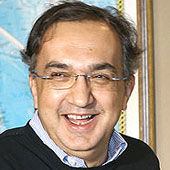Dateline Nigeria — Tomorrow Can Wait
How does an eight year-old boy get by on the streets of Lagos?
February 7, 2005
Somewhere in West Africa — between Ghana and Cameroon — lies Nigeria. The description may not ring a bell. Perhaps a better description would be the country whose President, Chief Olusegun Obasanjo, is the current Chairman of the African Union.
Or better still, we can describe it as one of the few African members of the Organization of Petroleum Exporting Countries (OPEC).
Regardless of their level of education, every one of the 120 million-odd citizens of this country knows that it is wealthy. The revenues from the export of Nigerian crude oil help to confirm the fact that Nigeria should be rich.
But that theoretical point is lost on many Nigerians. Rasheed, for instance, is only eight years old. He speaks no English and can only communicate in his native Yoruba. If you ask him any questions about his past, he has no answers because he doesn't know.
He ran away from where his parents had gone to 'dump' him as a house-boy a while ago. Rasheed cannot count the months or years — but he knows he hasn't seen them in a while. One can only guess how long "so long" is.
Rasheed is one of the many children that can be found washing windscreens at traffic lights on the street of Lagos, Nigeria's commercial capital.
They hang around in the hot blazing sun, dirty, unclean bodies in dirty, torn clothes — turned white from the dust swirled up by the dry winds of the harmattan, a weather condition that prevails in the sub-Saharan region around October to about February.
Their instrument is crude, a short metal bar curved at the top and covered with torn pieces of mattress. They carry a bottle of water in their armpit. The content foamy from the cheap detergent they mix with the water.
Funny enough, the children come in all shapes and sizes and they have no ethnic barriers, even though Nigeria has over 250 different ethnicities between them. In this business, there is free entry and newcomers are welcomed with open arms.
Rasheed smiles as the driver of the car he was trying to wash angrily waves him away. Today has been good, he told me in Yoruba. "The last two people I washed their cars gave me 20 Naira each (equivalent of $0.28 each)."
Perhaps it is his way of letting me know that today looks more promising. In a country where the majority of the people live on less the $2 a day, he cannot complain.
"What do you want to be in the future?" I asked. He looked at me quizzically, he need not say anything — from his reaction I knew that he had never thought of that.
I felt foolish, too, because I understand what he meant. He has enough things to worry about today — tomorrow can certainly wait.
He flashed me a smile and waved as he ran after a posh-looking Mercedes Benz E-Class that had just stopped at the traffic light.
The Nigerian government has found it difficult to address the issues of poverty and street children. The economic noose has tightened over the years, helped in no small ways by the crippling corruption and the death of the conscience of the political class.
The entire urban landscape of Nigeria is filled with beggars and street children. Asking, begging, appealing for aid in daytime — and becoming aggressive, dangerous and violent in the cover of night.
It is difficult for them to understand that the majority of those who are employed and from whom they beg for alms fare no better.
There is no formal social safety net in Nigeria, since the government says they cannot afford it.
A social safety net can only be found in the extended family system. People who are well-off — relatively speaking — in a family or community are expected to fend for those who are unemployed or less fortunate.
But the system could only work as long as there was a degree of affluence in the country. Today, with rampant poverty, a family-centered social safety net is simply not feasible anymore.
There are too many people out of work or requiring assistance. There are no alternative voices for those on the dole. They can only appeal to God.
'The chicken sweats' says an African proverb 'it is the feathers that prevents the sweat from being visible.' Those who are unemployed are overwhelmed with the requests they receive daily for alms — family, friends and strangers alike.
Tomorrow can wait. Today is a battle yet to be won.
Author

Adesola Orimalade
Writer
Read previous
The Globalist’s Eye on Africa
February 4, 2005